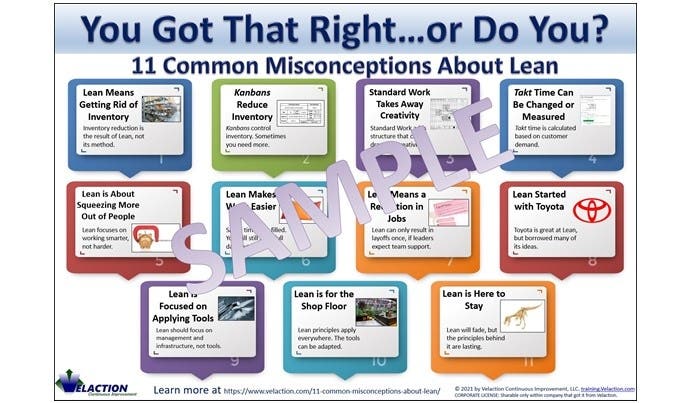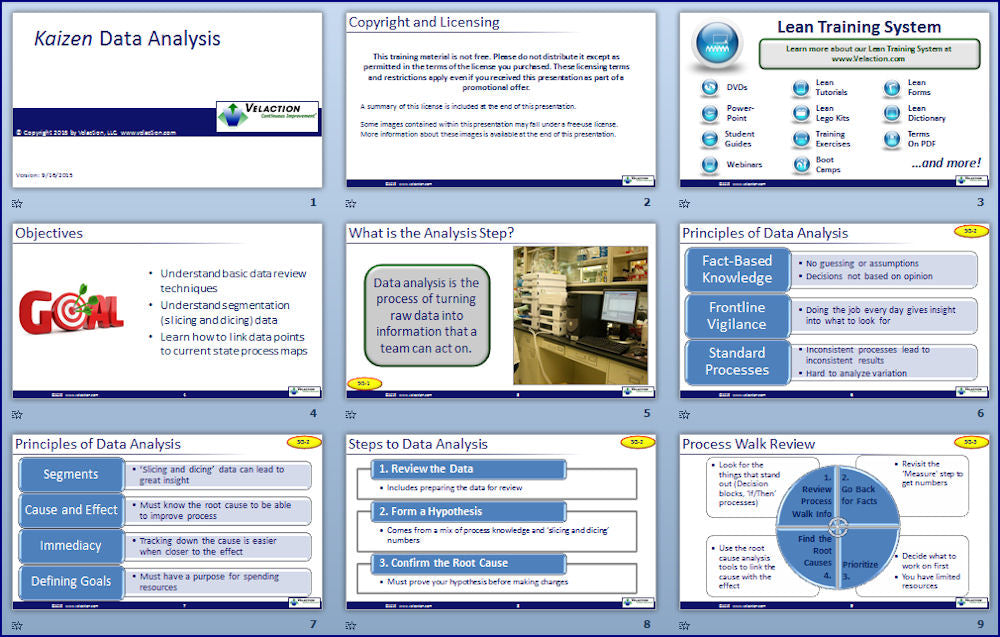One of the steps of any problem solving methodology is analysis. The kaizen process, as a ramped-up problem solving system, is no exception. Data can come fast and furious at many stages along the kaizen timeline. You will gather information in the planning phase, during the process walk, and while coming up with and testing out improvements.
Knowing what to do with that data is instrumental to the success of a project. This module, part of the Kaizen Process Training Module Group, focuses on crunching the data collected during the process walk, but teaches lessons that are applicable whenever you want to turn raw data into actionable information.
View the full course curriculum and additional information at CI Central.
You will receive an email with a link to download your digital product. This link will expire after 3 downloads.
This products contained in this download pack come with corporate licenses which allow you to share the product within your company only.
The licenses are automatically assigned to the company name used in the purchase of the product, or if no company included in the purchase, to the company email used in the transaction. If a personal email is used, the license must be manually assigned.
The license is permanent and non-transferable. It is valid only for single reporting units of companies under 20,000 people. For example, that means that a holding company would need licenses for each company in its portfolio.





















